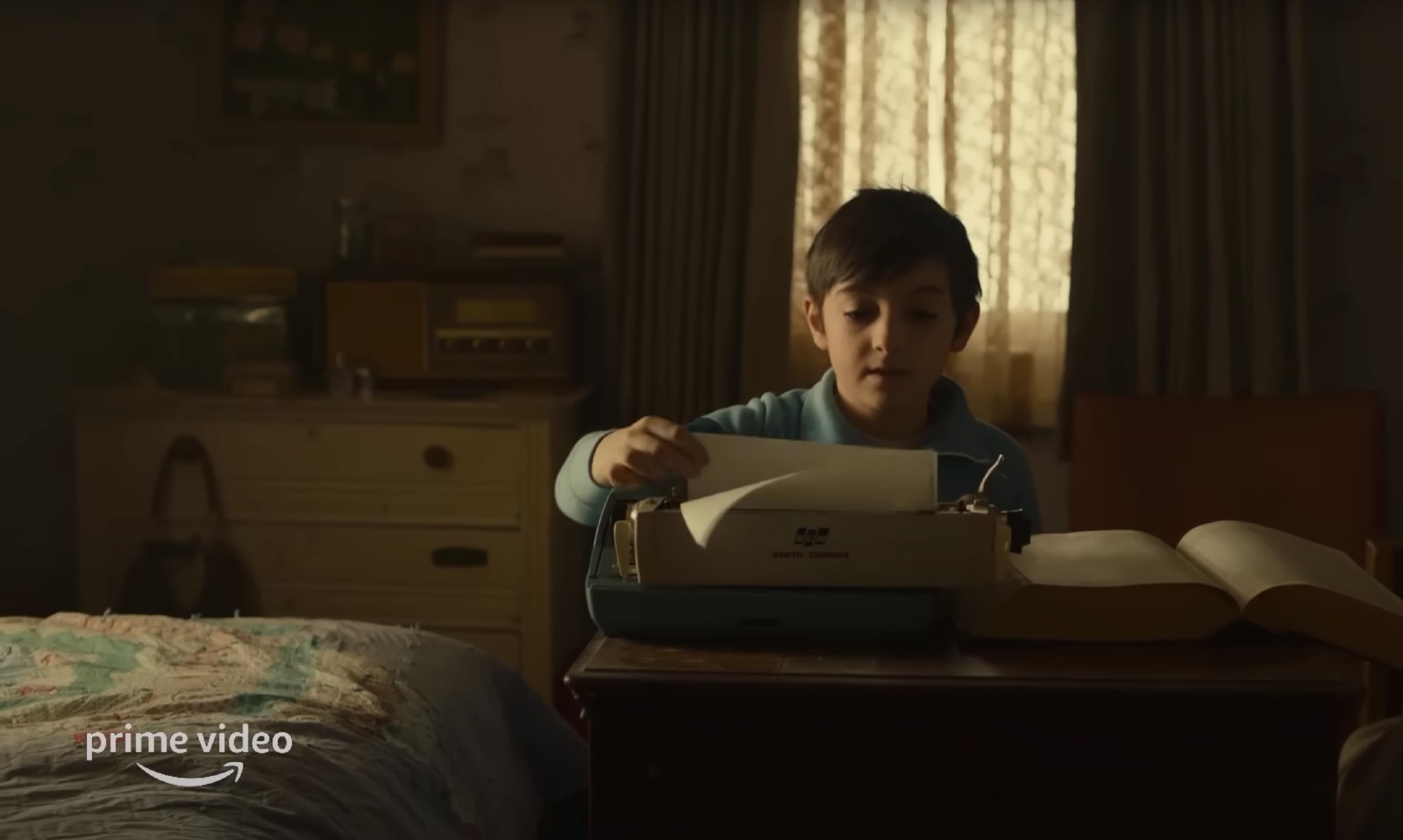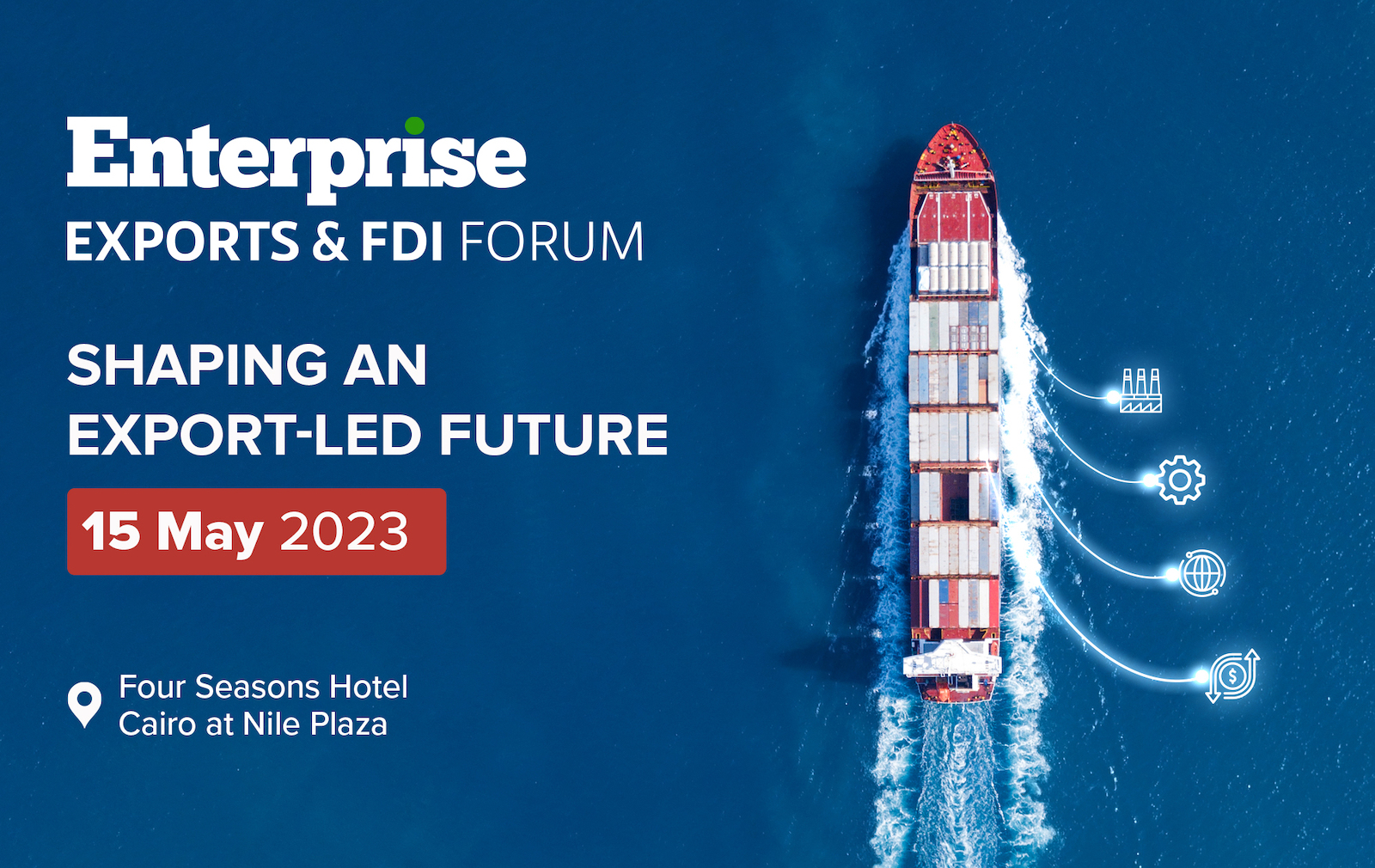- National Paints Holdings ups its offer for Pachin. (The Big Stories Today)
- Africa Finance Corporation plans to invest USD 1 bn in Egypt. (The Big Stories Today)
- Nader Abdelrazik, co-founder and CEO of MoneyHash. (Founder of the Week)
- Toblerone is saying goodbye to its iconic Matterhorn mountains. (For Your Commute)
- George Clooney-directed The Tender Bar: A heartfelt adaptation of an ordinary life story. (On the Tube Tonight)
- Zamalek’s future in the CAF Champions League will be determined tonight. (Sports)
- Hit up the AUC Tahrir Cultural Center for an all-women orchestra. (Out and About)
- Half of a Yellow Sun: Intertwining storylines amid a turbulent sociopolitical moment in Nigeria. (Under the Lamplight)

Tuesday, 7 March 2023
PM — Goodbye to Toblerone’s iconic packaging
TL;DR
WHAT WE’RE TRACKING TONIGHT

Good afternoon, wonderful people. Hump day is definitely a news dump day this week, as plenty of privatization stories are coming through.
THE BIG STORIES TODAY
#1- It’s another privatization-heavy day: Dubai-based National Paints Holdings (NPH) has upped its bid for Paint and Chemical Industries (Pachin), submitting a mandatory tender offer to fully acquire the state-owned company for EGP 34 per share, according to a Financial Regulatory Authority (FRA) statement (pdf). NPH’s offer is up from its initial offer of EGP 29 per share.
Meanwhile, the government is still studying the potential sale of a stake in state-owned Telecom Egypt, the company said in a disclosure to the bourse (pdf). The study of the potential sale is still “in the preliminary stages” and no final decisions have been made, Telecom Egypt said in the statement, noting that the studies may end up ruling out a stake sale.
#2- Africa Finance Corporation (AFC) is planning to invest at least USD 1 bn in Egypt in the coming period, AFC Executive Director and Chief Investment Officer Sameh Shenouda tells Al Arabiya. The investments will be geared towards infrastructure projects, including renewable energy and natural gas, along with heavy industries.
THE BIG STORY ABROAD
Labor unions push back against Macron’s pension bill: More than 1 mn people have taken to the streets in France in protest of President Emmanuel Macron’s bill to raise the national pension age, as the labor unions vow to bring the country “to a standstill.” There are calls for more disruption to key sectors like energy and transportation. With the confrontation between Macron and the unions ongoing for the past two months, there is still little indication that either side will back down – and no room for negotiation anymore, an analyst told the New York Times. If Macron fails to push through the bill, which few in government want or see as urgent, he risks becoming “a lame duck president” just a year into his second term, the paper adds.
The story is also getting ink from Bloomberg and Reuters.
** CATCH UP QUICK on the top stories from today’s EnterpriseAM:
- Expect stake sales in pre-IPO fund firms in April: The Sovereign Fund of Egypt’s (SFE) pre-IPO fund is set to offer stakes in 2-3 state-owned companies to strategic investors or via public share sales in April.
- Is TE the latest addition to Madbouly’s privatization list? The government is reportedly planning to sell a 10% stake in state-owned Telecom Egypt.
- EFG Hermes Group CEO Karim Awad kicked off the group’s One-on-One Conference in Dubai yesterday, welcoming 179 companies as well as 561 global institutional investors and fund managers to explore key investment opportunities across frontier and emerging markets.
|
We are delighted to share with you that the Enterprise Exports & FDI Forum will be taking place on Monday, 15 May at the Four Seasons Hotel at Nile Plaza.
DO YOU WANT TO ATTEND? The first wave of invites is going out soon. If you’re a C-suite exec, exporter, investor, official, banker, or someone who should be part of the conversation, please TAP OR CLICK HERE to request a spot at this exclusive event.
What’s the Enterprise Exports & FDI Forum? It is the latest in our series of must-attend, invitation-only gatherings for C-suite-level business leaders. The Enterprise Exports & FDI Forum will discuss the critical topics of exports and foreign direct investment (FDI) in Egypt.
We will be taking an in-depth look into some of the most vital industry topics, including:
- How to effectively break into new export markets
- How to leverage domestic trends in order to create export opportunities
- What foreign investors are looking for
- What the government's role should be
Why now? Exports and foreign direct investment (FDI) have never been more important to our economy — or our businesses — than in the wake of the float of the EGP. We think we have a once-in-a-lifetime chance to build an export-led economy that makes us a magnet for FDI, and all the benefits that will come with it for our nation.
Think of the Enterprise Exports & FDI Forum as a hands-on lab for how to turn the devaluation of the EGP into something that will turbocharge your company and our economy.
WANT TO ATTEND? Hit this link to let us know.
WANT TO SHARE YOUR STORY ON STAGE? Drop a note to Patrick here and let’s talk.
WANT TO BECOME A COMMERCIAL PARTNER? Ping a note to Moustafa, our head of commercial, here.
???? CIRCLE YOUR CALENDAR-
We have a date for CIFF: The Cairo International Film Festival (CIFF) will kick off at the Cairo Opera House on Wednesday 15 November and run through to Friday 24 November, the festival’s admins said in a statement last week.
Thanaweya Amma exam schedules are out: Thanaweya Amma exams are scheduled to take place between 12 June and 15 July, the Education Ministry said last month.
☀️ TOMORROW’S WEATHER- It’s going to be more or less the same weather we had today in the capital city, with a daytime high of 24°C and nighttime low of 13°C, our favorite weather app tells us.
FOR YOUR COMMUTE

So long, snowy mountains: The iconic Toblerone packaging will be redesigned, as the chocolate bar’s ingredients and manufacturing processes no longer live up to strict rules on how products qualify for the coveted “Swissness” iconography, reports the Guardian. The Swiss flag and iconic Matterhorn mountain range image are being removed from Toblerone’s packaging, as the chocolate makers move some of their production to Slovakia. A Toblerone bar will now read “established in Switzerland” rather than “of Switzerland” and its Matterhorn mountain peak will be replaced with a more generic Alpine summit.
The power of symbology: The requirements for Swiss products are seen by many as an indicator of quality. Studies have shown that certain products branded as “made in Switzerland” are sold at a 20% higher price than comparable goods from other origins. The sales price rises by up to 50% for luxury items. In 2017, a law on “Swissness” was introduced, that entails that products wanting to qualify as Swiss and use its imagery must consist of at least 80% of Swiss raw materials and the processes giving it its “essential characteristics” must have occurred in Switzerland.
Another round of layoffs at Meta? The social media giant is reportedly planning to fire thousands of employees within a week driven by financial targets, Bloomberg reports, citing people familiar with the matter. Facebook and Instagram’s parent company cut as many as 11k jobs (13% of their headcount) in its first major layoff in November in a bid to streamline the company’s efficiency. Executives are looking to fast-track the cuts to finalize the plan as soon as next week, before CEO Mark Zuckerberg goes on parental leave for his third child.
ENTERPRISE RECOMMENDS

???? ON THE TUBE TONIGHT-
(all times CLT)
A coming-of-age story about learning life’s tougher lessons: The Tender Bar, directed by George Clooney follows JR Moehringer in 1970s Long Island, as he navigates growing up with a working-class single mother and an absent father. Based on a memoir penned by the titular character, the film sees JR through the stages of his life — starting with his childhood, when his mother is forced to take JR back to her family home, providing both an eccentric environment and a more solid support network. JR looks to his Uncle Charlie (Ben Affleck) as an alternate father figure who teaches him “the male sciences” — pearls of wisdom and life lessons specifically for men — and offers JR guidance as he manages to get into Yale, faces his first heartbreak, and follows his aspirations of becoming a writer. You can watch The Tender Bar on Prime Video.
⚽ Zamalek is on a mission to salvage what it can in the CAF Champions League: Zamalek is hosting ES Tunis tonight at 9pm on matchday 4 of the group stage at the CAF Champions League. The White Knights are currently tailing their group with just one point, while ES Tunis is at the top of the group with full marks (nine points from three matches). Zamalek needs to defeat ES Tunis to ensure it moves past the group stage. At the same time, CR Belouizdad (third in the group with three points) faces off with Sudan’s Al-Merrikh (second in the group with four points).
Zamalek is also going to be facing off against Ronaldo at the Arab Club Champions Cup: Yesterday’s draw for the championship landed Zamalek in the Group C with Saudi Arabia’s Al-Nassr, which is led by Cristiano Ronaldo, according to a statement. The group will also include two more teams that will be determined based on the outcomes of the playoff round. Egypt’s Talae’ea El Gaish is also scheduled to participate in the playoff round, where it will face Libya’s Al Ahly Tripoli.
Meanwhile on home turf: Al Ahly goes head-to-head with Arab Contractors in the Egyptian Premier League at 5pm in a match that was postponed from Gameweek 17. The Red Devils are currently at the top of the league, with a two-point advantage over Pyramids FC and Future, but have played three fewer matches.
Over in the UEFA Champions League: Chelsea v Borussia Dortmund (aggregate 0-1) and Benfica v Club Brugge (aggregate 2-0) both kick off tonight at 10pm.
???? OUT AND ABOUT-
(all times CLT)
She Arts Orchestra will take center stage at AUC Tahrir Cultural Center tonight at 8pm. The night will feature two renowned soloists — Manal Mohie Eldain from Egypt on harp and Ginevra Rizzi from Italy as soprano — all under the baton of Italian conductor Isabella Ambrosini.
Experience a musical fusion of spiritual and cultural traditions tomorrow at 7pm with Abu Al Gheit Ensemble — a unique amalgamation of Sufi and Zar traditions rooted in the Delta of Egypt. The mystical sounds originate from Tariqa Ahmadiyya Gitaniyya, a sufi order founded by dervish Hassan Abu al-Gait at the dawn of 19th century. The live show will be held at Al Sehemy House.
One night, two brilliant performances at Cairo Jazz Club 610: Ahmad El Haggar and Wust El Balad will take the stage tonight at 9pm for a fusion of classical Egyptian sounds infused with jazz & neo soul from the former, as well as upbeat indie pop hits from the latter.
Get ready to be inspired by some of Egypt's most talented female artists with Art d’Egypte’s Kaon exhibition at the Arts’ Hub in Zamalek. Taking place from this Thursday, 9 March through Thursday, 23 March, the exhibition is held in celebration of International Women's Day.
Cirque du Soleil’s OVO kicks off tomorrow: The event features 100 performers taking the stage with their acrobatic acts. OVO will host 16 shows between tomorrow, and Friday, 18 March at Cairo international Stadium Hall, courtesy of real estate developer Madinet Nasr for Housing and Development (pdf).
???? UNDER THE LAMPLIGHT-
Set among the years preceding and following the Biafran War to establish an independent Nigeria, Chimamanda Ngozi Adichie’s Half of a Yellow Sun tells the stories of 13-year-old village boy Ugwu. The protagonist who works as a houseboy for a professor, Olanna — the professor’s girlfriend and daughter of an influential businessman — and Richard, a British expat studying Igbo-Ukwu art and dating Olanna’s twin sister. The story weaves the relationships of the different characters among the political and social turmoil of the period, as they are torn apart by war and personal decisions. Amid a turbulent and dramatic background, Adichie tells a story of how love complicates personal morals, ethnic allegiances and understandings of class and race. The book is a poignant read today, as Nigeria’s recent election outcome faces disputes and protests.
GO WITH THE FLOW
The EGX30 fell 2.2% at today’s close on turnover of EGP 1.9 bn (6.9% belo the 90-day average). Local investors were net buyers. The index is up 12.6% YTD.
In the green: Ezz Steel (+3.4%).
In the red: Qalaa Holdings (-4.6%), Telecom Egypt (-4.5%) and GB Auto (-4.3%).
FOUNDER OF THE WEEK

OUR FOUNDER OF THE WEEK– Every Tuesday, Founder of the Week looks at how a successful member of Egypt’s startup community got their big break, asks about their experiences running a business, and gets their advice for budding entrepreneurs. Speaking to us this week is Nader Abdelrazik (LinkedIn), co-founder and CEO of MoneyHash.
My name is Nader Abdelrazik and I’m the co-founder and CEO of MoneyHash. I’m an engineer by training but I explored several fields early in my career. I began my graduate studies, studying innovation at Nile University before switching to politics and economics and earned my master’s in Development Economics and International Development from UC Berkeley. I eventually came across the blockchain and fintech fields, which I found very exciting. So I left academia in 2017 and started joining startups in those fields. I worked in payment, fintech and blockchain for about five years before founding MoneyHash with a couple of my friends.
The best part of my job is definitely learning. I like studying and solving complicated problems, which in my job is figuring out how payments work across an entire region and how we can help businesses grow, so I learn a lot.
The worst part of my job is dealing with all the egos. There are a lot of ego-driven power dynamics between employers and employees, investors and startups, and regulators and companies, which can distract companies from innovation and growth. So we really focused on how to build a company with no internal politics and power dynamics. I have to make sure the team is excited, our investors are aligned, and our customers are happy. This balancing act is quite tough.
In contrast to other industries, I thought the startup world enabled you to make an impact quite quickly. It’s amazing how a group of people can decide to solve a problem together and then take on the pressure of coming up with a solution in a short amount of time with very limited resources. I eventually realized, through working with other founders, that the payments space is particularly painful for companies operating in emerging markets, especially those in the Middle East and Africa.
I founded the business because I believed that the Middle East and Africa deserved high-end technology for their most sensitive infrastructure component — payments. APIs are a way for softwares to communicate data to each other and this is how digital payments work. A traditional business will connect through an API with a payment gateway company — such as Fawry and Paymob in Egypt — to start accepting payments. Companies eventually try to integrate multiple payment service providers, across multiple markets, because they want to offer their customers a variety of payment methods and features to customize their checkout experience.
We then step in with the payments cloud we are creating: MoneyHash’s payment hub contains all integrations with payment service providers, checkout procedures, customization, reporting, and payment transactions across all markets.The platform allows companies to offer payment and fintech services at checkout, collect data and track analytics through a single dashboard, which helps businesses cut back significantly on technical development time. It also boosts conversion rates and recovers failed transactions, opening up numerous revenue streams.
We have the largest network of integration of APIs across the Middle East and Africa; we’re connected to over 100 payment methods and payment processors. We work with medium and large businesses in various fields such as e-commerce marketplaces, booking companies in the ticketing and tourism fields, large fintechs and companies in the investment and trading space.
MoneyHash is based in the US but most of the team is based in Egypt and in other parts of the world. We have team members all around including in Nigeria, South Africa, Berlin, Dubai and Boston. It’s challenging to manage everyone from a distance given the time difference, but so far I’m managing well. Being in California opens up a lot of doors to me. I have two co-founders, Mustafa Eid who is based in Egypt and Anisha Sekar is based in the US as well.
We are in product development mode and we still have a lot to build for our infrastructure to be reliable. In parallel to that, we’re very focused on helping as many customers as possible. In the short term, our target for this year is to cover several hundred customers across the region. In the long term, we want to be the best payment infrastructure across all emerging markets.
I have several KPIs that I regularly look at. Our top metric is how much money we are managing through our system, or total processing value (TPV). A greater TPV indicates that our customers trust and rely on us and our servers to handle that amount of money going through our system. Number of transactions or number of API calls that a business if processing is definitely another metric we look at. Revenue is also an important metric for the growth of our business.
MoneyHash raised a USD 3 mn pre-seed round last year and is currently raising more financing. The USD 3 mn pre-seed round was led by Emirati VC COTU Ventures, along with MENA fintech fund VentureSouq and European fund VentureFriends. Infrastructure companies are costly to build early on. We have a lot of ambitious financing plans that match our ambitious infrastructure.
My co-founder and I were not in a position to be able to bootstrap a startup. We both actually had a side job to be able to manage our living expenses while we were building the company for the first six months. We were very focused and anxious in the beginning to get funding to help us quit our jobs and dedicate our time to MoneyHash.
Starting a business is a very difficult decision but I’m lucky to have had my family’s support. Startups are risky because they may not work out, your income fluctuates or you may not have any income at all for a while. My wife was actually pregnant when I started MoneyHash, and we welcomed our first child as it was kicking off.
Being a founder of a startup is a lonely journey because there are so many stakeholders involved and that’s difficult to navigate. They each have their own biases and interests. Even your own co-founders are each managing their own areas. In addition to all of that you grapple with imposter syndrome, self-esteem, and managing your family life.
When I need advice to fix a difficult problem I tend to turn to my mentors or other founders. Having good mentors that you can pick up the phone and call is important. Other founders in more advanced stages with their businesses can be helpful in giving you some pointers. I also turn to my co-founders, we’ve built a safe space where we can share if we’re going through a difficult time.
I spend a lot of my down time with my family and playing with my son. He’s less than two years old so I’m enjoying/suffering through the perks of parenting. I’m a really good cook and I like to try new recipes. Cooking is a very soothing activity for me. I live in California and I have a lot of nature around so I’m always excited to go on a good walk.
I am a big fan of Instabug in Egypt — I think it’s a fantastic company. I don’t know the founders or the team personally, but I’m proud that Egypt has generated such a complicated technical company. I’m excited for companies like Gameball and Stllr and Welnes. I think they will grow and achieve great things.
THE ENTERPRISE ENTERTAINMENT CALENDAR
MARCH
23 February-11 March (Monday-Saturday): Diarna Exhibition, Cairo Festival City Mall, New Cairo.
8-18 March (Wednesday-Saturday): Cirque du Soleil’s OVO, Cairo international Stadium Hall.
15 March (Wednesday): Season 3 of Ted Lasso will be out on Apple TV.
23 March (Wednesday): First day of Ramadan (TBC). Maghreb will be at 6:08pm CLT.
APRIL
16 April (Sunday): Coptic Easter
17 April (Monday): Sham El Nessim.
21-26 April (Friday-Wednesday): LaLiga Egypt Football Camp, Xanadu Hotel, Makadi Bay, Hurghada.
22 April (Saturday): Eid El Fitr (TBC).
25 April (Tuesday): Sinai Liberation Day.
27 April (Thursday): National holiday in observance of Sinai Liberation Day (TBC).
MAY
1 May (Monday): Labor Day.
1 May (Monday): Backstreet Boys at 7pm, ZED East, New Cairo.
4 May (Thursday): National holiday in observance of Labor Day (TBC).
JUNE
10 June (Saturday): Thanaweya Amma examinations begin.
28 June-2 July (Wednesday-Sunday): Eid El Adha (TBC).
30 June (Friday): June 30 Revolution Day.
JULY
18 July (Tuesday): Islamic New Year.
20 July (Thursday): National holiday in observance of Islamic New Year (TBC).
23 July (Sunday): Revolution Day.
27 July (Thursday): National holiday in observance of Revolution Day.
SEPTEMBER
26 September (Tuesday): Prophet Muhammad’s birthday (TBC).
28 September (Thursday): National holiday in observance of Prophet Muhammad’s birthday (TBC).
OCTOBER
6 October (Friday): Armed Forces Day.
13 October- 20 October (Friday-Friday): The sixth edition of El Gouna Film Festival (GFF).
Enterprise is a daily publication of Enterprise Ventures LLC, an Egyptian limited liability company (commercial register 83594), and a subsidiary of Inktank Communications. Summaries are intended for guidance only and are provided on an as-is basis; kindly refer to the source article in its original language prior to undertaking any action. Neither Enterprise Ventures nor its staff assume any responsibility or liability for the accuracy of the information contained in this publication, whether in the form of summaries or analysis. © 2022 Enterprise Ventures LLC.
Enterprise is available without charge thanks to the generous support of HSBC Egypt (tax ID: 204-901-715), the leading corporate and retail lender in Egypt; EFG Hermes (tax ID: 200-178-385), the leading financial services corporation in frontier emerging markets; SODIC (tax ID: 212-168-002), a leading Egyptian real estate developer; SomaBay (tax ID: 204-903-300), our Red Sea holiday partner; Infinity (tax ID: 474-939-359), the ultimate way to power cities, industries, and homes directly from nature right here in Egypt; CIRA (tax ID: 200-069-608), the leading providers of K-12 and higher level education in Egypt; Orascom Construction (tax ID: 229-988-806), the leading construction and engineering company building infrastructure in Egypt and abroad; Moharram & Partners (tax ID: 616-112-459), the leading public policy and government affairs partner; Palm Hills Developments (tax ID: 432-737-014), a leading developer of commercial and residential properties; Mashreq (tax ID: 204-898-862), the MENA region’s leading homegrown personal and digital bank; Industrial Development Group (IDG) (tax ID:266-965-253), the leading builder of industrial parks in Egypt; Hassan Allam Properties (tax ID: 553-096-567), one of Egypt’s most prominent and leading builders; and Saleh, Barsoum & Abdel Aziz (tax ID: 220-002-827), the leading audit, tax and accounting firm in Egypt.





